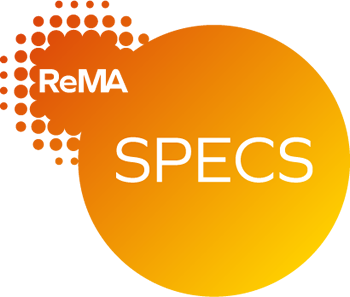Inbound Residential Single Stream is the material derived from a recycling method whereby residents of a community place allowed materials in a specifically designated receptacle to be left at a drop off point outside their residence.
Materials in the receptacle are then collected by a recycler for processing at a Materials Recovery Facility. Organic and other materials that can be considered solid waste are not permitted in this material mix.
Any other recyclable materials may be added or deleted based on the individual agreement between buyer (MRF) and seller (Hauler or Municipality).
Description
A commodity mix of certain materials placed in specifically designated receptacles to be left at a drop off point outside their residence.
Paper
Colored Paper
Newspaper
Magazines
Phonebooks
Junk Mail
Paperboard
Tissue boxes/rolls
Paper towel and toilet paper rolls
Cardboard
Brown or Kraft paper
Paper boxes/cartons
Pizza Boxes, remove food and liner
Plastic
Empty PET (#1), HDPE (#2), PP (#5) Plastic Bottles, Jugs, Jars And Containers
Bulky Rigid Plastics Such As Crates, Buckets, Totes, Baskets
Tubs and Lids
Metal
Glass
Bottles and jars of any color
All materials should be clean, loose, and dry.
Contamination
Contamination is defined as anything not considered acceptable in the specification.
- None permitted unless specifically agreed to in writing between buyer and seller.
- No bagged recyclables unless otherwise accepted in local curbside collection program.
The following items are considered contamination:
Paper
Containers coasted with wax, plastic or other materials
Wallpaper
Material with excess food residue or other organic material
Plastic
Plastic Bags & Plastic Film
Expanded Polystyrene Foam (#6)
Multi-layered juice pouches
Plastic from electronics
Plastic marked as biodegradable or compostable
Metal
Aerosol cans that are under pressure or partly filled
Glass
All glass with the exception of that listed above
Drinking glasses, crystal or tableware
Mirrors
Non-container glass
Light bulbs
Windows
Prohibited Materials
The term “Prohibited Materials” as used throughout this document is defined as items never allowed and includes any material that contains medical, organic, food, hazardous, poisonous, radioactive or toxic waste and other harmful substances or liquids.
Additional examples of prohibited items are:
a) Sharps and Needles
b) Batteries
c) Radioactive materials
d) Hazardous materials
e) Corrosives
f) Medical waste
g) Pesticides, poisons, bio hazards
h) Compressed gas cylinders
i) Refrigerants
j) PCB containing capacitors, transformers, ballast
k) Asbestos
l) Materials that may be damaging to equipment
m) Materials containing information protected or regulated under any local, state or federal privacy or data security laws, including, but not limited to the Health Insurance Portability and Accountability Act of 1996, as amended, or other regulations or ordinances.
n) Wax
o) Electronics
p) Large items such as tires, appliances, roofing materials
q) Wood
r) Ceramics
s) Food Waste or other items that can otherwise be composted
t) Rock, dirt, asphalt, concrete
Residential curbside recycling systems can offer a significant amount of variability. Please check with the recycling program coordinator for more information on what is considered acceptable in the jurisdiction.

